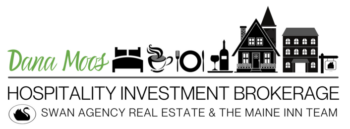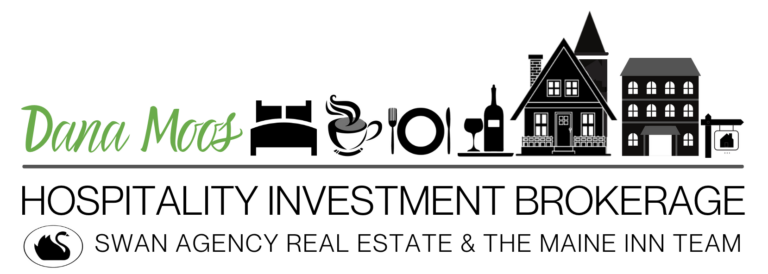You think you might have a pretty good idea what type of inn or B&B is ideal for you. However, coming from experience, I can tell you that if you keep an open mind, your options will be much greater and results possibly much more successful.
If there exists the perfect property, it’s often rare to find. But don’t let that concern you. What you need to focus on is each aspect of innkeeping and its importance to you:
- Owner’s Quarters (size, space, location, privacy)
- Number of guest rooms (fewer could make for a “hobby” B&B, more rooms greatly affect the business and income) which leads to the next point…
- Is this a hobby or a required source of income for you? Or somewhere in the middle?
- Location of the property – do you prefer land and space in a secluded or rural setting? Or in-town? Understand that there are benefits to each, in the right location
- Is the property in a primary, secondary destination or a pass-through town? Again, there are benefits to all.
- Does the property offer options to expand into other revenue streams if you so desired? Space for retail, selling tote bags embroidered with the inn’s logo, etc.
- Do you have a crazy desire to run a restaurant (like me) where you could offer guests dinner in your lovely, intimate dining room? What about a beautiful weekend brunch, for guests as well as the public? Does the property have the space to convert to restaurant, a commercial kitchen or space for it? Parking? If open to the public, would the town benefit from it?
- Can you convert the property to your style? Many times buyers are afraid to do this or don’t have the vision, but there are ways of accomplishing this successfully to suit you and your guests
- Don’t let properties without all private baths deter you. Look at it as an opportunity to enhance the property and maybe combine two rooms to create a suite at a higher price. Depending on the setup, modification may not be that difficult or expensive.
- Seasonal vs. year-round properties: Seasonal meaning you can operate your inn during the 6 month period common to the area, or would you prefer a more steady income stream over 12 months? There are pros and cons to each side (like many, I assumed after leaving the corporate world and not wanting to manage people, I wanted a property small enough for me and my husband to run with only housekeeping staff. So we worked furiously every day without a break, and took 6 months off. It’s like a light switch without a dimmer – completely ON or completely OFF! WORK HARD, PLAY HARD. And we loved it. But that’s not for everyone. Maybe having a year-round property has the potential to bring in more revenue, allows you to hire employees looking for annual work, not summer work (even if it’s not 40 hours per week) and maybe you’re able to take a day or two off every week.
- Enjoyment. Ask yourself: Will I enjoy the use of the property?
When considering the price of listings on the market, talk with the agent about the options of each property. I have several properties at the moment that are well priced, several that have a very realistic potential to increase revenue substantially, some that will immediately provide a good income and some that have fantastic owners quarters (the latter of the two will naturally be higher priced) and even a few with a combination of them all. Some properties in the higher range will have a very strong revenue which affords staff and therefore allows the owner to take more time off than a lower priced property. Weigh what matters to you most. But realize that you might have to compromise here or there.
When considering price range, just be concerned with having the cash down payment. If a property is performing, the banks will often be willing to lend more and risk more since the revenue is there from the start.



